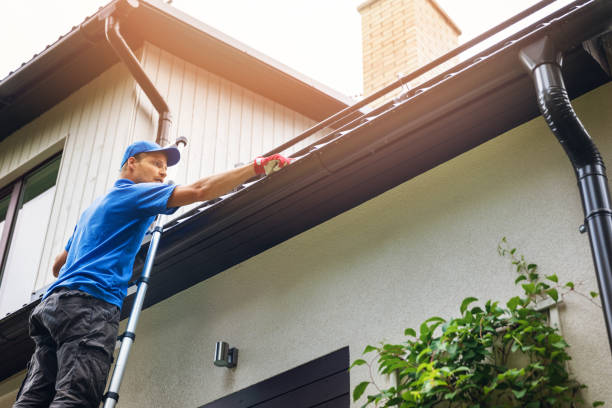Diwali, the festival of lights, is a time for celebration, family gatherings, and the delight of lighting lamps and fireworks. However, for asthma patients, the festive season can pose additional health risks due to heightened air pollution and smoke from firecrackers. The air quality tends to deteriorate during Diwali, making it challenging for those with respiratory conditions such as asthma to breathe easily. Dr.Sudhir Kr. Gupta, Sr. Consultant (Chest Physician &Bronchoscopist) at Kailash Hospital, Noida, shares valuable insights and practical tips to help asthma patients enjoy a safe and healthy Diwali.
Understanding Asthma and Its Triggers During Diwali
Asthma is a persistent and debilitating respiratory condition marked by inflamed and constricted airways, which can spark a range of distressing symptoms including wheezing, breathlessness, a feeling of constriction in the chest, and persistent coughing. What triggers these issues can vary greatly from one individual to another, although common culprits often include airborne irritants like dust, smoke, pungent odors, chilly air, and environmental pollutants.
During Diwali, the air becomes laden with pollutants from firecracker smoke, dust from cleaning activities, and incense stick use, all of which can worsen asthma symptoms. “The rise in particulate matter and harmful gases in the air during Diwali can significantly increase the risk of asthma attacks,” warns Dr. Gupta.
How to Prevent an Asthma Attack This Diwali
Asthma patients need to take extra precautions to avoid potential asthma triggers during the festive season. Here are some essential tips for asthma patients to prevent asthma attacks and enjoy Diwali safely.
1. Stay Indoors During Peak Firecracker Hours
One of the simplest and most effective ways to reduce exposure to smoke and air pollution is to stay indoors, especially during the evening and night when firecracker activities are at their peak. “Avoiding outdoor activities during these periods can greatly lower the risk of an asthma attack,” advises Dr. Gupta. “If you must go outside, be sure to wear a mask to filter out air pollutants.
2. Keep Your Home Air Clean
Use air purifiers in your home to maintain indoor air quality. Air purifiers with HEPA filters can help remove fine particulate matter and allergens from the air, making it easier for asthma patients to breathe. Additionally, keep windows and doors closed during times when fireworks are being set off outside. This helps minimize the entry of smoke and dust particles into your home.
“Using air purifiers and keeping windows shut during Diwali can help create a safer breathing environment for asthma patients,” suggests Dr. Gupta.
3. Avoid Lighting Diyas, Candles, and Incense Sticks Indoors
While Diwali celebrations often involve lighting diyas and incense sticks, these can release smoke and irritants that may trigger asthma symptoms. It’s better to use battery-operated LED lights or electric diyas for indoor decoration. If you prefer using traditional oil lamps, place them outside or in a well-ventilated area to reduce smoke exposure.
“Avoiding indoor smoke sources such as incense and diyas is an important step in preventing asthma symptoms during the festival,” adds Dr. Gupta.
4. Maintain a Clean Home to Minimize Dust Exposure
Diwali often involves thorough cleaning and decorating, which can stir up dust, another common asthma trigger. If you’re an asthma patient, consider hiring help for cleaning tasks or use a vacuum cleaner with a HEPA filter to reduce dust exposure. Avoid using strong-smelling cleaning products, as the fumes can aggravate asthma symptoms.
5. Take Your Asthma Medications Regularly
It is essential to continue taking your asthma medications as prescribed by your doctor. If you use inhalers, make sure they are always within reach. ‘Preventive medications can better manage asthma symptoms, particularly during periods of heightened exposure to triggers,” says Dr. Gupta. If you are on a maintenance dose of inhaled corticosteroids or other controller medications, stick to the schedule strictly to reduce the risk of flare-ups.
6. Avoid Heavy Physical Activities Outdoors
Although Diwali is a time of festivities and celebration, asthma patients are advised to avoid strenuous outdoor activities, such as dancing or sports, particularly when air pollution levels are elevated. Physical exertion can increase breathing rates, making it easier for pollutants to enter the lungs.
“Limit your activities during Diwali, especially when pollution levels are elevated. Pay attention to your body’s signals and avoid overexertion,” advises Dr. Gupta.
7. Monitor Air Quality and Plan Accordingly
Keep an eye on local air quality indexes (AQI) during Diwali. If the air quality is in the “unhealthy” range, avoid outdoor exposure as much as possible. Use apps or websites that provide real-time air quality updates to make informed decisions about going outdoors.
8. Practice Breathing Exercises
Breathing exercises such as pursed-lip breathing and diaphragmatic breathing can help asthma patients improve their lung capacity and maintain better control over their breathing. Practicing these exercises regularly can also help manage anxiety related to asthma symptoms.
“Incorporating breathing exercises into your daily routine can help improve lung function and reduce the severity of asthma symptoms,” recommends Dr. Gupta.
Managing an Asthma Attack During Diwali
Despite taking precautions, asthma patients may still experience an asthma attack. Knowing how to manage an attack promptly can make a significant difference.
1. Use a Reliever Inhaler Immediately
If you experience symptoms such as wheezing, coughing, or shortness of breath, use your reliever inhaler (usually a bronchodilator) immediately. This medication helps open up the airways, making it easier to breathe.
“Having a reliever inhaler readily available during Diwali is essential for asthma patients. It should be used as soon as symptoms start,” advises Dr. Gupta.
2. Move to a Clean, Well-Ventilated Area
If possible, move away from the source of the smoke or pollution and find a clean, well-ventilated area. Sitting up straight can help open your airways and make breathing easier. Avoid lying down, as this may worsen the symptoms.
3. Stay Calm and Practice Breathing Techniques
Panic and anxiety can make asthma symptoms worse. Try to stay calm and focus on slow, controlled breathing. Using breathing techniques such as pursed-lip breathing can help ease symptoms until the medication takes effect.
When to Seek Medical Help
If your symptoms do not improve with the use of a reliever inhaler or if you experience severe symptoms such as difficulty speaking, confusion, or bluish lips or face, seek emergency medical help immediately. “Asthma attacks can be life-threatening, and timely medical intervention is crucial,” emphasizes Dr. Gupta.
Kailash Hospital, Noida, offers comprehensive care for asthma patients, including emergency treatment, routine check-ups, and advice on managing the condition during high-risk times such as Diwali. The hospital’s team of experienced specialists, led by Dr.Sudhir Kr. Gupta, provides tailored treatment plans to help asthma patients stay safe and healthy.
Long-Term Strategies for Asthma Management
While taking precautions during Diwali is essential, long-term asthma management is also critical to keeping symptoms under control. Here are some strategies that can help you manage asthma more effectively:
- Regular Check-Ups with a Chest Specialist: Consult with a chest physician to monitor your condition and adjust your treatment plan as needed. Regular check-ups can help keep asthma symptoms under control.
- Allergy Testing: Identifying specific allergens that trigger your asthma can help you avoid them.
- Vaccinations: Seasonal flu and pneumonia vaccines can help protect you from respiratory infections that could worsen asthma symptoms.
Diwali is a time for celebration, but for asthma patients, it is essential to be cautious and take steps to avoid exposure to triggers that can exacerbate symptoms. By staying indoors during peak firecracker hours, using air purifiers, maintaining a clean environment, and taking asthma medications regularly, you can significantly reduce the risk of an asthma attack during the festive season.
Dr. Sudhir Kr. Gupta and the team at Kailash Hospital, Noida, are committed to providing expert care for asthma patients. If you have concerns about managing asthma during Diwali, don’t hesitate to seek professional advice and ensure that you have an asthma action plan in place.
Taking these precautions will allow asthma patients to enjoy Diwali safely and without compromising their health. Stay safe and have a happy, asthma-free Diwali!


